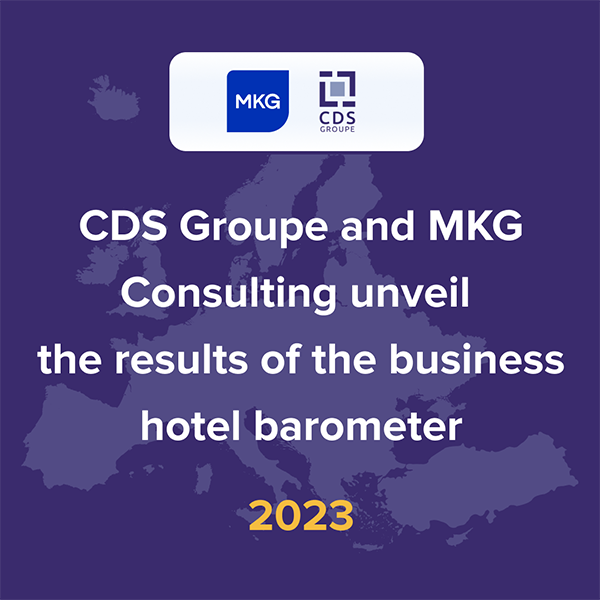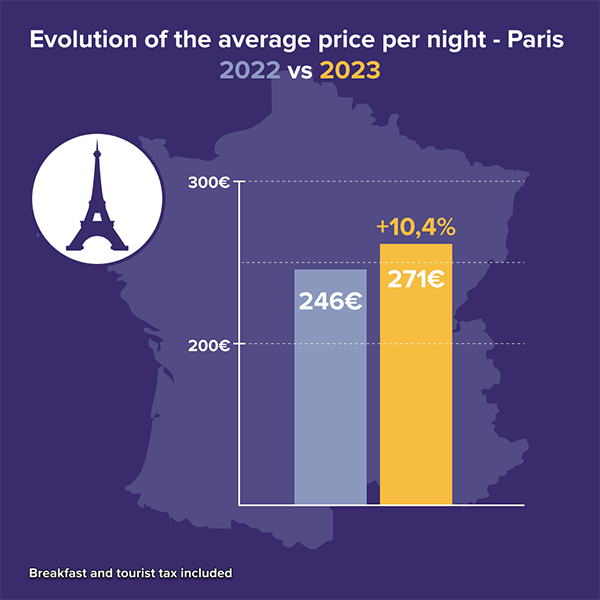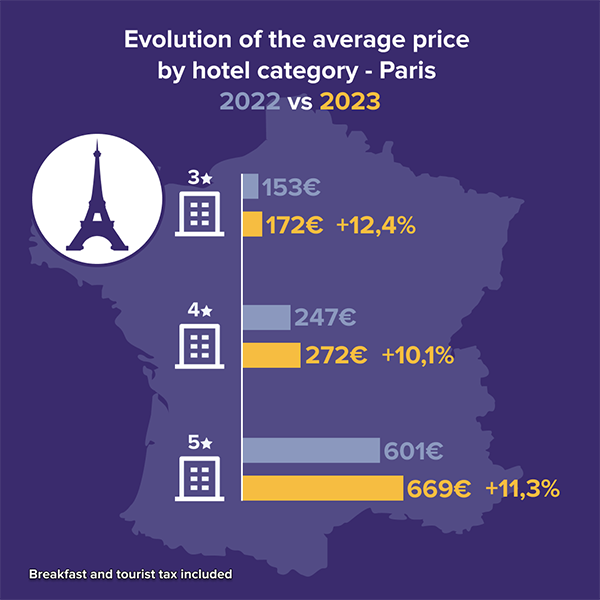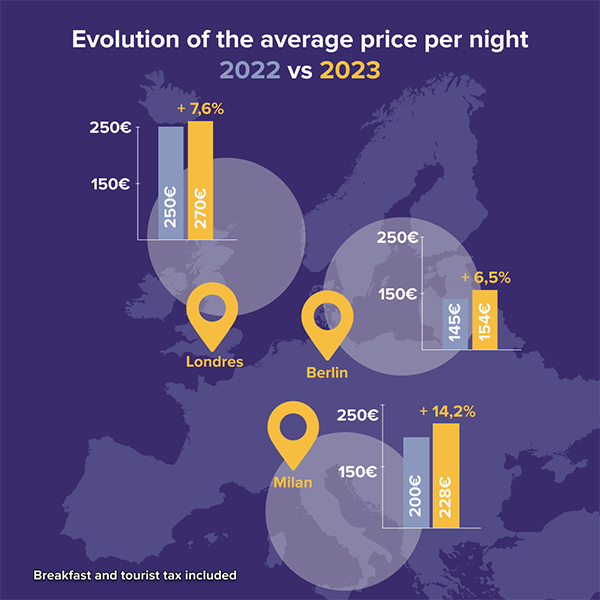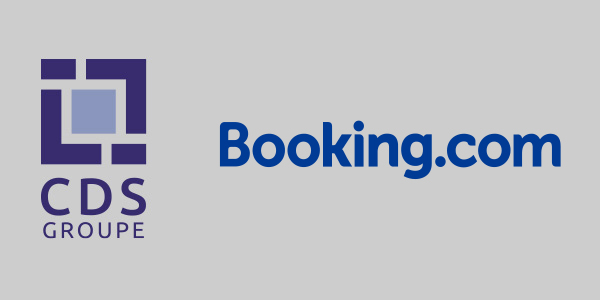The inflationary trend persisted in France throughout 2023, driven by a combination of factors: the significant return of international tourists creating pressure on occupancy rates, the hosting of the Rugby World Cup, and the rising costs of services (energy, food, staff). The dynamism of leisure customers affects room availability and inevitably has an impact on corporate prices.
According to travel managers, the current situation has made hotel budget management increasingly challenging. Therefore, it is essential today to gain insight into trends to better control purchases and accordingly adjust spending limits by city.
The 2023 barometer is the result of collaborative work between MKG Consulting and CDS Groupe. This tool, offered to the Business Travel industry, provides a comprehensive overview of the hotel market across Europe, with a focus on France, Germany, and Italy.
This detailed report shows occupancy rates and average prices per city and category. It provides buyers and travel managers with a transparent overview of the rates applied by hoteliers, enabling them to manage their accommodation policy more effectively.
According to Ziad Minkara, this new approach of empowering the traveler seems to be working well. Regardless of the approach, implementing rigorous processes for hotel budget management, from booking to payment and including digital invoicing, results in savings ranging from 7 to 11%. In other words, the buyer’s levers no longer solely rely on rate negotiations, although they remain significant, but on establishing tools and processes to manage the hotel expenditure comprehensively from end to end.
In addition, 2024 is likely to be a very special year, given the impact of the Olympic and Paralympic Games. This year, the monthly report will therefore be supplemented by an additional study dedicated to the evolution of booking rates during the period of the Olympic and Paralympic Games, to provide the best possible support to buyers and travel managers.
The effect of Olympic Games will be a challenge for travel managers. The advice given by the public authorities to encourage remote working in order to relieve transport congestion to and in the capital is likely to cause a travel freeze 2
during the summer. But as July is traditionally a busy month for business travel, travellers will have to shift to June and especially to the autumn, a period that is usually already very busy. This could lead to traffic jams and the risk of skyrocketing prices.
“Business travel is a crucial segment of the French tourism industry. It ensures hotels are occupied from Monday to Friday and contributes to the economic activity of the entire country.
We are pleased to observe that post-COVID, despite initial concerns, business travelers have returned to levels close to those of 2019.” ” states Vanguelis Panayotis, CEO of MKG Consulting.


